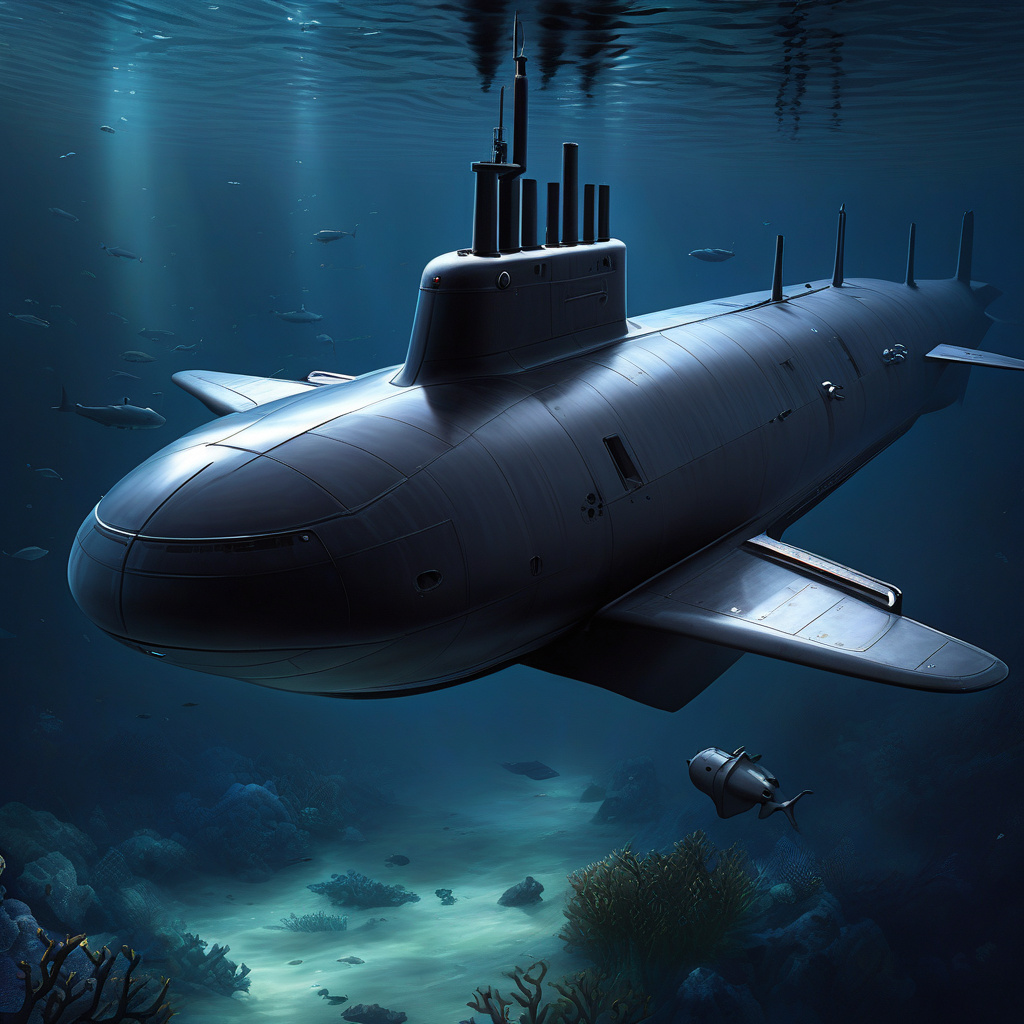Stealthier Submarines: China’s New Tech Could Cut Vessel’s Engine Noise by 50%
Chinese scientists have allegedly made a major breakthrough in submarine stealth technology. According to reports, researchers from China’s Northwestern Polytechnical University claim to have developed a new technology that could significantly reduce a submarine’s engine noise by up to 50%. This advancement has the potential to revolutionize naval warfare, as quieter submarines are harder to detect, giving them a strategic advantage in covert operations and defense.
The reduction of a submarine’s engine noise is crucial for its stealth capabilities. Currently, submarines rely on sound-dampening technologies to minimize noise output, as any sound generated can be picked up by sensitive hydrophones and sonar systems used by adversaries to detect underwater threats. By cutting engine noise in half, Chinese submarines equipped with this new technology could operate with a much-reduced risk of being detected, enhancing their ability to conduct surveillance, intelligence gathering, and military operations without being compromised.
Silent propulsion systems have long been a focus of naval research and development, with countries around the world investing heavily in technologies to make their submarines quieter. The United States, Russia, and European nations have been at the forefront of submarine stealth technology, but China’s recent breakthrough could potentially challenge the existing status quo in undersea warfare.
The implications of China’s advancements in submarine stealth technology are far-reaching. In addition to military applications, quieter submarines could also have significant commercial and scientific benefits. Improved stealth capabilities could enhance China’s ability to protect its maritime interests, such as safeguarding shipping routes and offshore resources. Moreover, quieter submarines could support underwater research and exploration efforts, allowing for the study of marine ecosystems and geological formations without disturbing marine life.
It is important to note that while China’s claims of a 50% reduction in submarine engine noise are impressive, the actual performance of this new technology remains to be independently verified. Submarine stealth is a complex and multi-faceted field, involving not only engine noise but also hydrodynamic design, materials science, and acoustic signature management. Further testing and evaluation will be necessary to determine the full extent of the capabilities of China’s new stealth technology.
Nevertheless, China’s pursuit of advanced submarine stealth capabilities underscores the country’s commitment to modernizing its naval forces and enhancing its strategic capabilities in the maritime domain. As China seeks to assert itself as a major naval power, innovations in submarine technology will play a crucial role in shaping the future of naval warfare in the Indo-Pacific region and beyond.
In conclusion, China’s reported breakthrough in reducing submarine engine noise by 50% represents a significant development in the field of undersea warfare. If successfully implemented, this new technology could give Chinese submarines a substantial advantage in stealth and operational effectiveness, with implications for military, commercial, and scientific applications both regionally and globally.
#SubmarineTechnology, #NavalWarfare, #UnderseaStealth, #ChineseInnovations, #MaritimeSecurity












